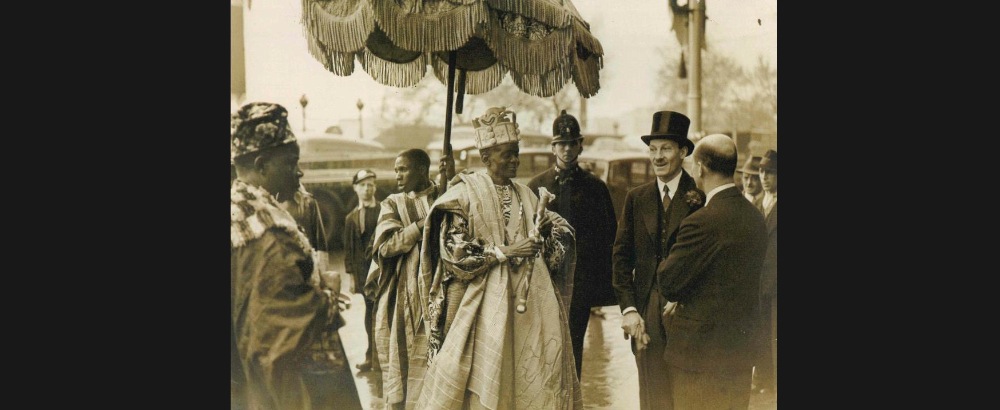A massive collection of pre-digital photography shows a nation in transition—and manages bring Facebook-level connectivity into a gallery space.
By Joseph Gergel
They are portraits of anonymous subjects and events, the photographs showing their age through corrupted colors and torn edges. They are images of the vernacular, of mundane and ordinary events. Families pose together for an intimate portrait, anniversaries are captured for the gilded frame in the living room or the personal scrapbook. Dated press images suggest news that was once current and important. The images included in the vast online photographic archive of the Nigerian Nostalgia Project—currently exhibited as an interactive installation at LagosPhoto 2012—attest to a bygone era of film canisters and negatives, a pre-digital era where photography captured images without the immediacy and infinite shareability of our current digital era.
The ambiguous photographs create a mosaic-style of portrait of Nigerian society at the cusp of independence and cultural transition.
The Nigerian Nostalgia Project is an online digital archive of collected photographs that comprised of images, video, sound bytes, press clippings, publicity stills, and various ephemera depicting scenes and people in Nigeria between 1960 and 1980. The project is based on Facebook, where users upload their personal archives for collective viewing. The project currently has over 15,000 members.
The ambiguous photographs create a mosaic-style of portrait of Nigerian society at the cusp of independence and cultural transition. The Nigerian Nostalgia Project fills the gap of a visual history of Nigeria constructed on a grassroots and individualized scale. Images that have lost their intimate relationship with the viewer begin to take on new meanings when commented upon by the thousands of participants on the site. New connections are made, personal reflections build upon one another to reconstruct the image’s context, and a collective cultural consciousness is constructed in community discussions.
While the choice to restrict images to before 1980 reflects a conscious aim at engaging a pre-digital culture, the success of the project rests on the viability of social media as an interactive communication platform. The exhibition at LagosPhoto marks the first time that the project has left the confines of Facebook and entered three-dimensional space. Intimately scaled prints cover the walls of the exhibition venue to form an encapsulating mural.
While the Facebook platform works to engage social participation, it was unclear if the transition of the Nigerian Nostalgia Project into a gallery space would lead to a similar connectivity. But it did: visitors conversed in person and exchanged their own memories of such cultural events.
While photography has developed at an unprecedented scale in Nigeria over the past decade, there has yet to be the embrace of the vernacular photographic archive that situates the historically. In a society where political instabilities over the last 50 years have led to symptoms of cultural amnesia, the Nigerian Nostalgia Project brings photography back to a connectivity between past historical events and the current social condition in Nigeria today.
The Nigerian Nostalgia Project opened on October 18 2012 at A White Space in Lagos, Nigeria, as a satellite exhibition of LagosPhoto 2012. Launched in 2010, LagosPhoto includes exhibitions, workshops, public programming, and large-scale outdoor prints displayed throughout the city with the aim of reclaiming public spaces and engaging the general public with stories of Africa. LagosPhoto 2012 is entitled “Seven Days in the Life of Lagos,” with twenty-nine local and international photographers and seven exhibitions throughout the city.
Joseph Gergel is the co-curator of LagosPhoto.

